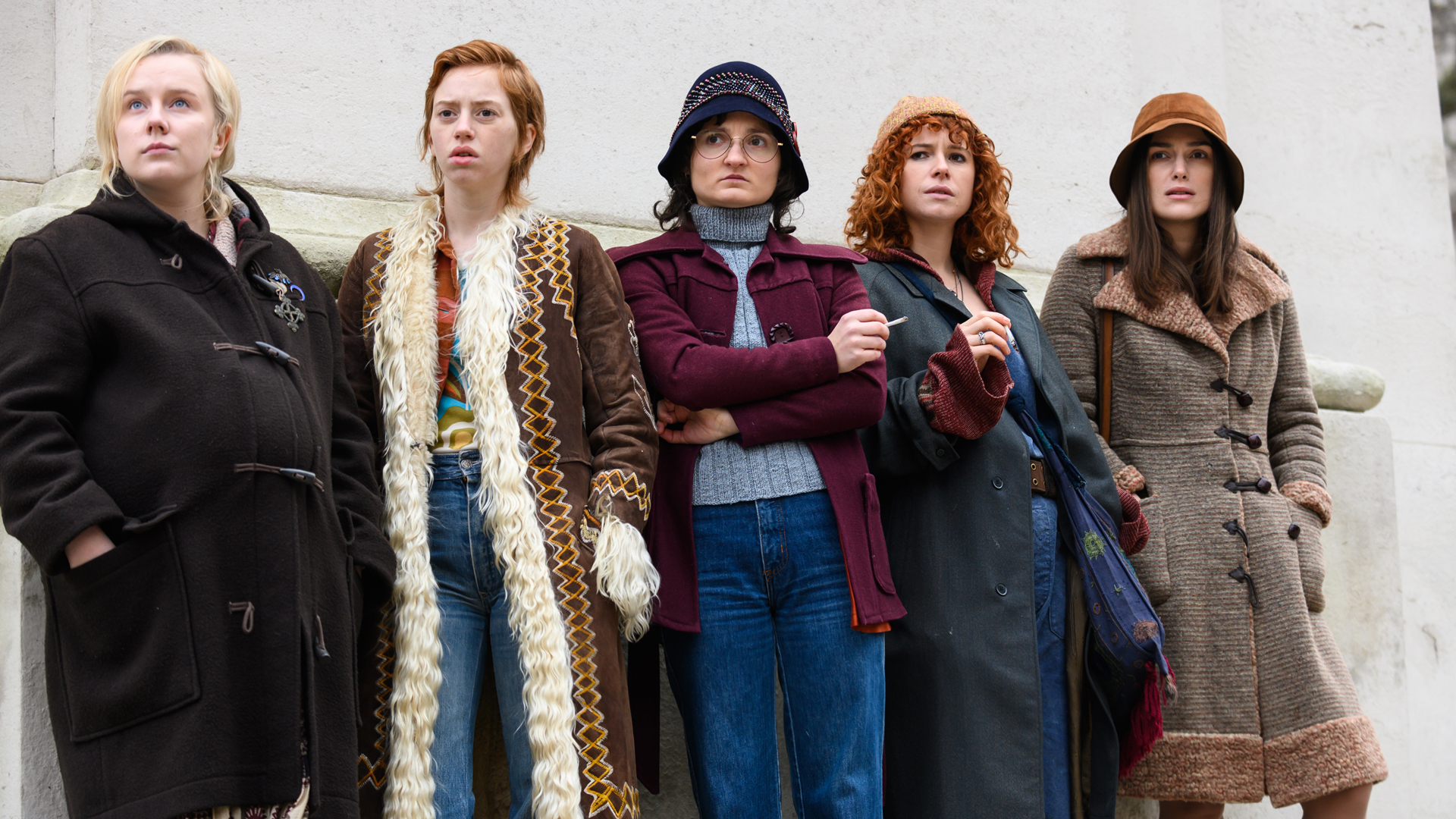Beauty pageants are, and always have been, inherently sexist. To make things worse, they are also criminally dull. Something about the prize being a crown seems to bring regal affectations to the fore. In these stage-managed parades of airless pomp and cheesy circumstance, going off-script is literally the worst thing that can happen. Perhaps that’s why the Miss World final in 1970 was so memorable: while creaky host Bob Hope delivered ribald gags on-stage, the London ceremony was derailed by feminist protesters armed with football rattles and DIY missiles. At a time when women’s liberation was still in its infancy, it was a commendable example of rage before beauty.
The global TV audience of millions tuning in for Miss Sweden’s swimsuit twirl only got half the story, as the BBC cut the broadcast when the flour bombs began flying. Misbehaviour shades in the rest of what happened, not just behind-the-scenes at the ceremony – which gives this serious-minded but entertainingly zippy film an action-packed climax – but also during the months leading up to the fateful night, as dissatisfied activists drew up their daring plans.
When we first meet Sally (Keira Knightley), she’s in front of a different kind of judging panel. A single mum keen to get back into education, she is obviously capable but finds herself belittled by an all-male university admissions board. The frustrated Sally comes into the chaotic orbit of Jo (Jessie Buckley), a graffiti-spraying militant who takes a more wrecking-ball approach to smashing the patriarchy.
Anyone who saw Buckley play an impulsive, hell-raising country singer in Wild Rose knows she can be an absolute force of nature on-screen, and Misbehaviour cranks up a gear once Jo and her pugnacious girl-gang enter the story. While Sally and Jo bicker and bond during impassioned ideological meetings in communal squats, there is also an insight into what things are like on the other side of the velvet rope as the newly-crowned Miss Grenada (Gugu Mbatha-Raw) is thrust into Miss World’s three-ring circus of primping and tottering. Constantly shadowed by a chaperone and subject to “statutory padding checks”, Miss Grenada – rarely called by her real name, Jennifer – feels the responsibility of representation, as one of the first black contestants in the pageant’s two-decade history.
Despite revisiting events from 50 years ago, Misbehaviour dramatises themes that are still relevant today when trying to effect change in compromised and outdated systems: should you infiltrate and try to reform from within, or simply reject them outright? It is also a story that refreshingly foregrounds the female experience.









